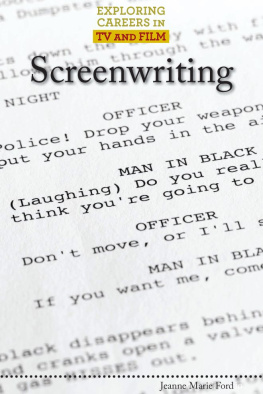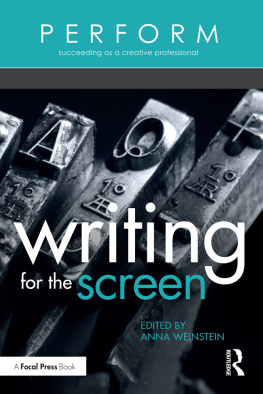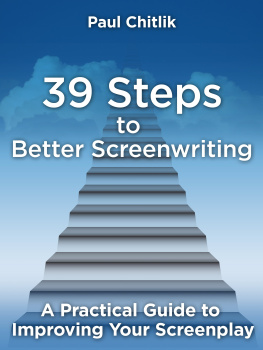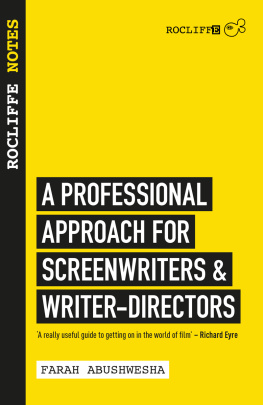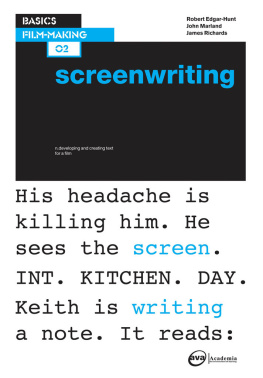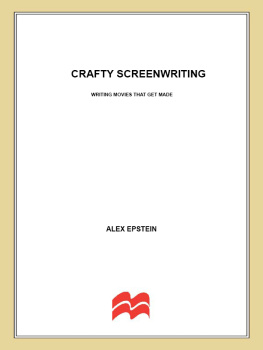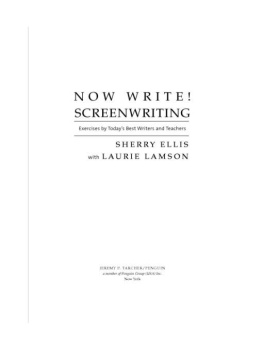If you like this book, buy it!
| page_10 |
| | The Central Conflict Should Be Explored in Depth from Many Points of View |
| The problems of the family in A Long Day's Journey into Night, a tale in which a father, mother, and two sons are in total conflict, are seen differently by each member of the family. Each has his or her own problems. The complexity of ways in which they can be viewed is vast. |
| The decision of the sheriff in High Noon to remain in town affects each person who comes on the screen: his wife, his former mistress, his friends, his clergyman, the judge, the deputy, etc. |
| In Hamlet, the conflict is seen from many points of view: through the eyes of Hamlet, his mother, his uncle, his friend Horatio, his fiance, her father, and her brother. |
| Domestic Conflict Is the Most Universal of Conflicts |
| Viewers have all been party to family conflict and they develop a Peeping-Tom relationship to the characters in Who's Afraid of Virginia Woolf?, Ordinary People, Kramer vs Kramer, or Hamlet. The viewer, looking at someone else's bared soul, is drawn into that character's problems and is emotionally involved with them. The best dramafrom Oedipus Rex to Hamlet to Who's Afraid of Virginia Woolf? to Death of a Salesman to A Long Day's Journey into Night to A Streetcar Named Desirehas been the drama of family scandals. Tragic action is often not enemy against enemy, or among neutrals, but among friends or family. |
| Primal conflictfamily conflictis the stuff of high drama. |
| | | Hamlet's uncle murders his brother and marries his sister-in-law. |
| | | Oedipus kills his father and marries his mother. |
| | | Blanche du Bois (A Streetcar Named Desire) is raped by her brother-in-law and goes mad. |
| The problem of the scriptwriter is to understand how and when to draw back to keep this kind of tale from becoming melodrama or soap opera. The line between classic film or |
|
|
| page_10 |
If you like this book, buy it!
| page_100 |
| | ing. If the writer makes a personal contact with someone interested in his script or services, he should inform his agent at once and not let him be surprised by hearing it from a third party. |
| Many writers initiate their own deals through personal contacts, but the contract should always be negotiated by an agent. All studios and producing companies have "boilerplate" contracts, a basic contract which meets the Guild minimums, but such contracts are written to the producer's advantage, not the writer's. An agent may negotiate better payments, modify terms, or demand changes; a writer may not know what he is entitled to. |
| How to choose an agent. As in many other working relationships, word of mouth and personal recommendations and reputations carry weight. Appendix B is a current list of agents who have signed agreements with the WGA; this means that they will abide by all Guild rules in writing contracts for their clients. They cannot negotiate a contract for the writer for employment or sale of a screenplay, a script for a television series, pilot, miniseries, outline, treatment, option, residuals, pensions, or anything else covered by the WGA, for less than the MBA terms. |
| Note that some agents will not read any unsolicited material submitted to them. Some will only read material recommended to them by someone they know. Others will accept and read unsolicited material. This last category is the one for the novice to investigate with a query and sample script. The script form should follow all of the recommendations in Chapter 7. A script should be submitted loose, not bound. If he agrees to represent it, the agent will put his own distinctive cover on the script for identification. |
| What to expect of an agent. There are big agencies, small agencies, and some independent agents. Each type has its advantages and disadvantages. A big agency with dozens of agents and hundreds of clients may have more contacts in the industry, giving it greater clout. If it also represents directors, producers, and stars, and packages film projects, it |
|
|
| page_100 |
If you like this book, buy it!
| page_101 |
| | may be able to secure employment for its writers on these projects and through these people. On the other hand, the new, unknown writer can get lost in a big agency. His script may be forever at the bottom of the pile. |
| An independent agent or small agency with a shorter list of clients may work harder for the newcomer. Hollywood generally worships youth and newness and will welcome the young newcomer who can deliver the old, tried-and-true formula story. |
| Scripts can be registered with WGA for a small fee (see Appendix A). However, submission of a script by an agent also protects the writer. Agents keep records of submissions, so producers are not likely to steal ideas. |
| It is very unusual for a script to be stolen, and even rarer for a suit for plagiarism to succeed. A suit for plagiarism requires proving more than two or three incidents in common. Most plagiarism of lines or brief episodes is unconscious and unintended. It is unimportant whether a theme has been used before. What is important is what story is hung on it. Rerunning ideas in new forms is popular. Thus, the Japanese film Seven Samurai became the Western, The Magnificent Seven, and the Japanese Yojimbo became the first "Spaghetti Western," A Fistful of Dollars. |
| The agent should read the script before sending it out. He may correct errors of grammar, spelling, or fact (which should not be necessary). He may offer suggestions for changes, but do not let him rewrite or even demand a rewrite unless you agree with his ideas. If the agent is too busy to read the scripts and says "just tell me the story," he will probably be too busy to sell it. |
| WGA has a basic collaboration agreement protecting the rights of all parties. Writers entering into a collaboration with one or more partners should be aware in advance of the problem of what to do if an offer is made for a jointly written script and one partner wishes to accept the offer and the other wishes to reject it. The one who wants to reject must |
|
|
| page_101 |
If you like this book, buy it!
Next page

